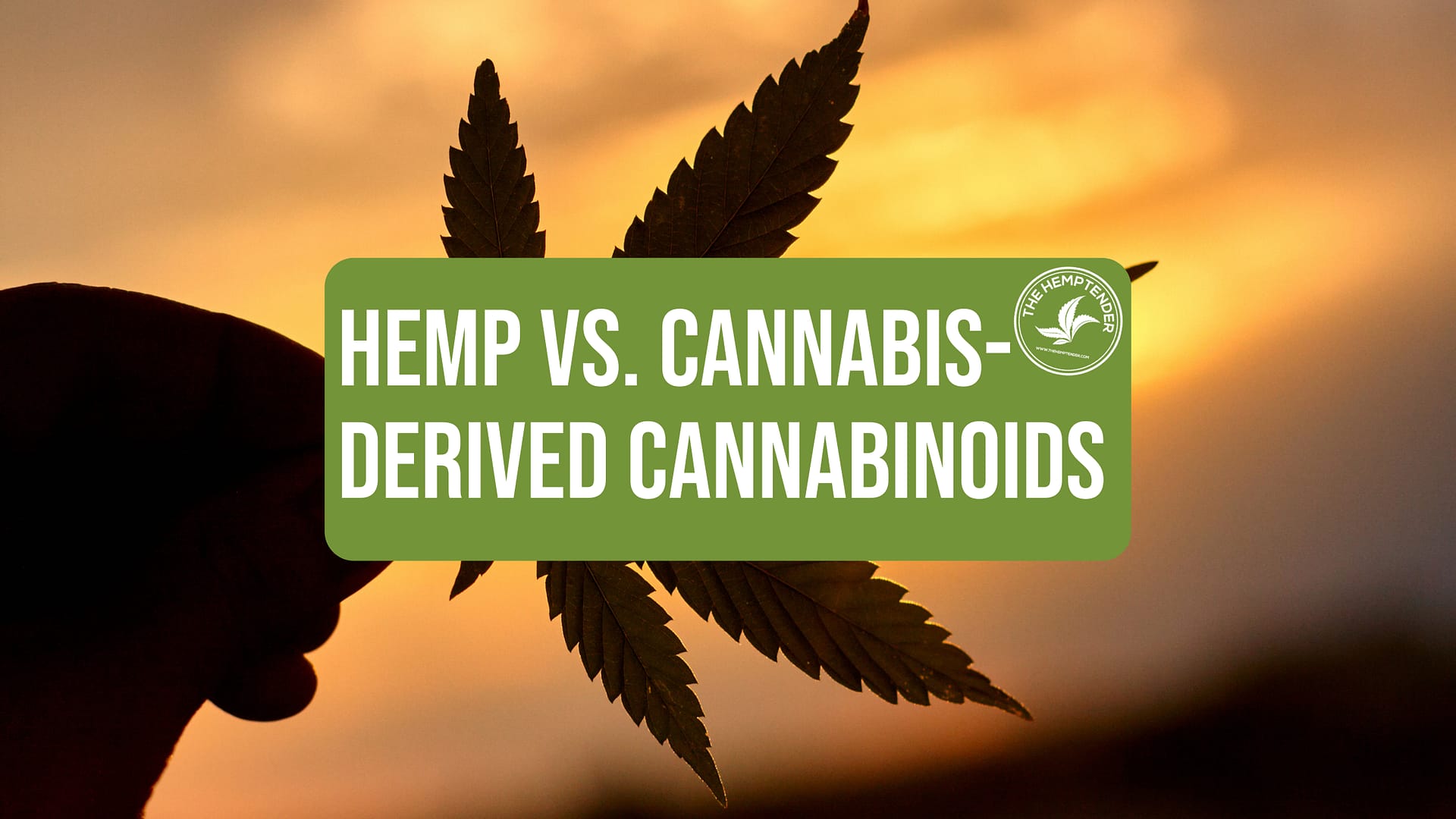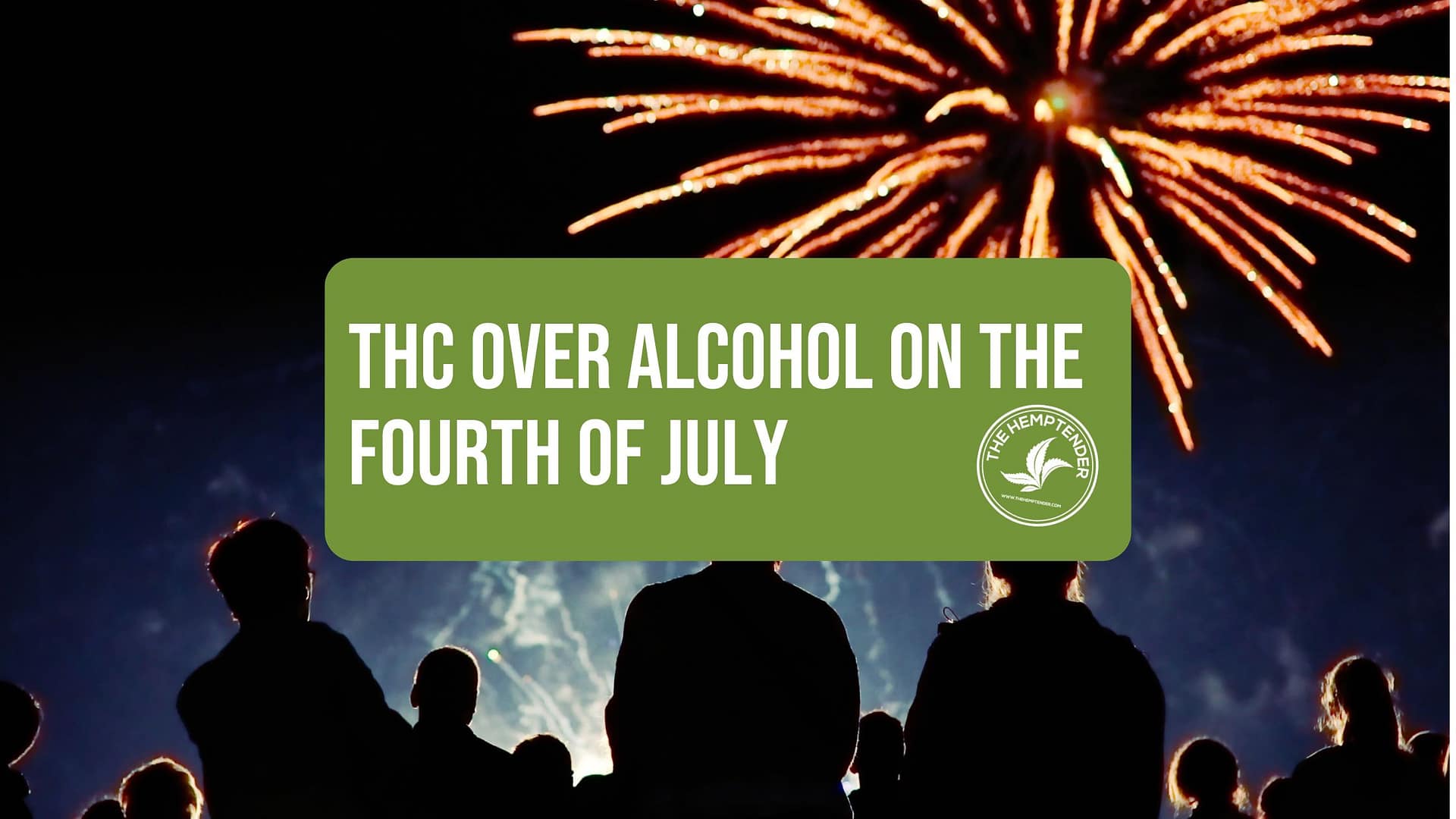Hemp-Derived Cannabinoids Vs. Marijuana-Derived Cannabinoids

Interested in learning the difference between hemp-derived cannabinoids vs. marijuana-derived cannabinoids? Here’s a quick primer.
What’s the difference between hemp and marijuana anyway?
Hemp and marijuana both look alike and produce cannabinoids, but they’re two different things. Hemp is a more fibrous subspecies of cannabis plants and is best known for producing CBD-dominant flowers. Typically, hemp only contains minimal amounts of intoxicating cannabinoids like THC. Regardless, hemp is used in a lot of industrial and personal applications and has historically been used to make clothes, paper, textiles, and rope. With recent research into non-intoxicating cannabinoids like CBD, hemp has become a go-to for health supplements and beauty products as well.
Marijuana (also known as cannabis), on the other hand, is grown because it produces THC. The resinous flowers are used by medical marijuana patients and recreational users since the high-inducing effects may help people against the symptoms of a handful of medical conditions. Since they’re grown mainly for their flowers, marijuana plants aren’t used in industry and are mainly used for personal reasons.
That all said, hemp and marijuana are different. While they look a lot alike and produce similar flowers, hemp plants produce minimal THC while cannabis produces a lot of it. This minor difference separates the two into two separate categories with different intended uses.
What are cannabinoids?
There are 80-100 cannabinoids found in cannabis and hemp, and each one binds to different endocannabinoid receptors to promote different effects. Cannabinoids are chemical compounds that vary in structure, however, our bodies also create them. They bind to the endocannabinoid receptors found in our central nervous system and within our body to send different messages and trigger body responses. The cannabinoids we create are called endocannabinoids. Like the cannabinoids found in cannabis and hemp, endocannabinoids bind to the endocannabinoid receptors within the endocannabinoid system to help keep it balanced and functioning optimally.
The most common cannabinoids are THC and CBD, which are found in both cannabis and in hemp. They mimic endocannabinoids we naturally produce, so they bind to our endocannabinoid receptors easily and promote many potentially therapeutic effects within the brain and body. While cannabis and hemp are different, they both produce cannabinoids that may be beneficial to people. Hemp and cannabis produce a variety of different cannabinoids in many different concentrations, making them both potentially useful for managing certain symptoms.
Hemp-derived cannabinoids vs. Marijuana-derived cannabinoids
The key difference between cannabinoids extracted from hemp and from marijuana boils down to the plant of origin. If you purchase hemp-derived CBD, you’re getting CBD from hemp plants. If you purchase marijuana-derived CBD, you’re getting CBD from cannabis plants. Knowing the difference is important, though. While hemp is legal in most places, marijuana still isn’t. It’s legal to travel and use most hemp-derived cannabinoids in most places, while marijuana-derived cannabinoids can only be used and purchased in states with legal marijuana.
The 2018 Farm Bill legalized hemp and hemp-derived cannabinoids as long as the final products contain no more than 0.3% delta-9 THC on a dry weight basis. On the other hand, cannabinoids extracted from marijuana are still illegal on a federal level, checking in as Schedule I substances. The cannabinoids extracted from cannabis are still banned everywhere except for states that offer medical or recreational marijuana.
As for synthetic cannabinoids like delta-8 THC and HHC, they exist in a legal gray area. If they’re hemp-derived they may be legal in most places. Just keep in mind that many states have taken steps to ban these substances too. Even if you’re looking at hemp-derived products, always double-check the laws in your state to make sure a product you’re interested in is legal.
If you’re exploring all of the different ways to enjoy cannabinoids, stick to hemp-derived cannabinoids instead of marijuana-derived cannabinoids, especially if you live in a state that doesn’t have medical or recreational marijuana. Always purchase hemp-derived cannabinoids from reputable sellers that have third-party lab test results and refuse to ship to places that have banned certain hemp-derived cannabinoids, like The Hemptender.



